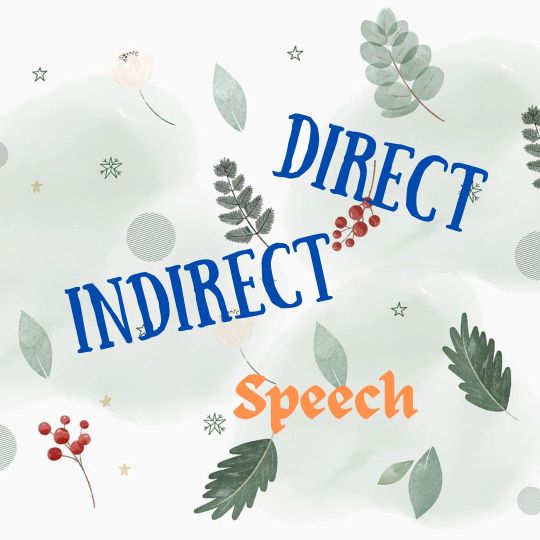#quotationmarks
Explore tagged Tumblr posts
Text

Quotation Marks
March 22, 2024|Blogging
Quotation marks are great little markers, use them when you want to enclose what someone says. You can use them to suggest doubt or skepticism. Use them in definitions, sayings or to indicate the clever or silly use of a word. Here is an example: My sister said, “I need to do my homework.” Do not capitalize the first letter if the quoted material is a fragment or a phrase. And here's one for you....remember to "Enjoy the Write!" KSCarson
#Blog#Blogger#Blogging#blogoftheday#writing#books#nottomissnovels#authorksc#kscauthor#Souza_Author#story#read#authors#storyteller#FrisdayMotivation#FridayVibes#BookTwitter#WritingProcess#QuotationMarks#mustread#amazonbooks#booksworthreading#barnesandnoble#indieauthor#fivestarreview#goodreads
0 notes
Text
Quotation Marks
This article clarifies the proper use of quotation marks, covering direct quotes, titles, and unconventional language expressions.
#QuotationMarks#GrammarRules#Punctuation#LanguageSkills#EnglishLanguage#ELATeacher#TestPrep#InstructionalDesign
0 notes
Text
Direct (Quoted) and Indirect (Reported) Speech

Direct and Indirect Speech
Direct speech also known as quoted speech, is a form of reporting in which the exact words spoken by a person are enclosed in quotation marks. Quotation Marks: Place the spoken words inside double quotation marks (” “) She said, “I will be there by 3 o'clock.” Punctuation: Use a comma, question mark, or exclamation mark to end the quoted speech, placed inside the quotation marks. She exclaimed, “What a beautiful sunset!” He asked, “Have you seen my keys?” John said, “I'll meet you at the cafe at 7:00.” Reporting Verb: Introduce the quoted speech with a reporting verb (said, asked, replied, shouted, etc.). The reporting verb is usually followed by a comma (,). Mary said, “I can't believe it.” Capitalization: Capitalize the first letter of the quoted speech. Tom exclaimed, “This is incredible!” Sarah said, “I love reading books.” The teacher asked, “Did everyone complete their homework?" He shouted, “Run! The dog is coming!” Lisa whispered, “I have a secret to tell you.” “Stop right there!” commanded the police officer. While changing the Speaker: Start a new paragraph when there is a change in the speaker. “I love hiking,” said Sarah. “Really?” responded Mark. “I prefer swimming.” Dialogue Tags: Use dialogue tags (he said, she exclaimed, they asked) to attribute the speech to a specific character. “I don't agree,” she argued. Punctuation with Interrupted Speech: Use em dashes (—) to indicate an interruption within the quoted speech. “I was just try—” Single Quotation Marks for Nested Quotes: Use single quotation marks (‘’) for quotes within quotes. She said, “He told me, ‘I'll be there.’” Punctuation at the End of a Sentence: If the direct speech is at the end of a sentence, place the ending punctuation inside the closing quotation mark. “I'll see you later.” No Punctuation for Unfinished Thoughts: If the direct speech is an unfinished thought, use an ellipsis (…) to indicate that. “I was just thinking that if we could...”
Reported (Indirect) Speech:
Reported speech, also known as indirect speech, is a way of expressing what someone else has said without quoting their exact words. When using reported speech, you convey the meaning or content of someone's statement rather than reproducing their words verbatim. Reported speech is often used to report conversations, statements, or information shared by others. Here are the key characteristics and rules of reported speech: Reporting Verb: Begin the reported speech with a reporting verb such as said, told, asked, or another appropriate verb. Direct speech – “I will come tomorrow,” Reported speech - She said (that) she would come the next day. Pronoun Changes: Change the pronouns in the reported speech to reflect the perspective of the speaker. Direct speech – “I am going to the party now,” Reported speech - She said (that) she was going to the party then. Tense Changes: Adjust the tense of the verbs in the reported speech to reflect the time perspective of the original statement. Direct speech – “I studied yesterday,” Reported speech - He said (that) he had studied the day before. Time and Place Changes: Adjust expressions of time and place in the reported speech to match the context of the reporting. Direct speech – “I'll meet you here the day after tomorrow,” Reported speech - She said (that) she would meet me there two days later. Changes in Modals: Modify modal verbs to match the reported context. Direct speech – “I can help you,” Reported speech - He said (that) he could help me. Optional “That”: The word that is often optional in reported speech and can be omitted in many cases. Direct speech – “I need your help,” Reported speech - She said (that) she needed my help. Reporting Questions: Change questions into reported speech by using an appropriate reporting verb and adjusting word order. Direct speech – “Are you coming with us?” Reported speech - He asked if I was coming with them. Reporting Commands and Requests: Report commands and requests using verbs like ask, tell, or request, and adjust pronouns and verbs accordingly. Direct speech – “Close the door,” Reported speech - She told me to close the door. Tense Shifting Rules: When changing direct speech into indirect speech, the conjunction that is often used to introduce the reported speech. Additionally, there are specific rules for shifting tenses depending on the tense of the original statement. Present Simple Tense: Direct Speech: “I like ice cream.” Indirect Speech: She said that she liked ice cream. Present Continuous Tense: Direct Speech: “I am eating lunch.” Indirect Speech: He said that he was eating lunch. Present Perfect Tense: Direct Speech: “I have finished my homework.” Indirect Speech: She said that she had finished her homework. Past Simple Tense: Direct Speech: “I visited the museum.” Indirect Speech: He said that he had visited the museum. Past Continuous Tense: Direct Speech: “I was reading a book.” Indirect Speech: She said that she had been reading a book. Past Perfect Tense: Direct Speech: “I had already eaten.” Indirect Speech: He said that he had already eaten. No Backshift - Reporting a General Truth or Universal Fact: Direct Speech: “The Earth revolves around the sun.” Indirect Speech: She said that the Earth revolves around the sun. Shifting from Tense to Tense Rule: Present Simple to Past Simple: Change Present Simple to Past Simple: Direct: She said, “I get up at eight o’clock.” Indirect: She said that she got up at eight o’clock. Present Continuous to Past Continuous: Change the present continuous tense to the past continuous tense. Direct: He said, “I am watching TV.” Indirect: He said that he was watching TV. Present Perfect to Past Perfect: Change the present perfect tense to the past perfect tense. Direct: “I have visited London.” Indirect: She said that she had visited London. Past Simple to Past Perfect: Change the past simple tense to the past perfect tense. Direct: She said, “I arrived.” Indirect: She said that she had arrived. No Backshift for General Truths: When reporting general truths or universal facts, there is no backshift in tense. Direct: He says, “Water boils at 100 degrees Celsius.” Indirect: He says that water boils at 100 degrees Celsius. When changing direct speech to indirect speech, pronouns, demonstratives, and adverbs of time and place may need adjustment. Here are the rules and examples for each: Pronouns: Change of Pronouns: Change the pronouns in the reported speech to match the perspective of the reporting speaker Direct: “I am happy,” she said. Indirect: She said that she was happy. First Person to Third Person: When reporting someone else's statement, change the first-person pronouns to third-person pronouns. Direct: “We will be here,” he said. Indirect: He said that they would be there. Demonstratives: Change of Demonstratives: Change demonstratives (this, these, that, those) to reflect the perspective of the reporting speaker. Direct: “This is my car,” Tom said. Indirect: Tom said (that) that was his car. Adverbs of Time and Place: Change of Adverbs of Time: Adjust adverbs of time to match the context of the reporting. Direct: “I will do it tomorrow,” she said. Indirect: She said that she would do it the next day. Change of Adverbs of Place: Adjust adverbs of place to match the context of the reporting. Direct: “We met here,” he said. Indirect: He said that they had met there. Here's a table summarizing the changes of pronouns, demonstratives, and adverbs in reported speech: Direct Speech Indirect Speech Pronouns: I She/he (depending on the context) We They You (singular) He/she/it You (plural) They He/She/It They Me Her/him Us Them My/Mine Her/his/its Our/Ours Their/theirs Demonstratives: This That These Those Adverbs of Time: Now Then Today That day Tomorrow The next day Yesterday The day before Adverbs of Place: Here There This place That place These places Those places
Interrogative Sentence Transforming:
When transforming interrogative sentences from direct speech to indirect speech, there are specific rules to follow regarding word order, tense changes, and the use of reporting verbs. Here are the rules and examples for changing interrogative sentences: Changing Word Order: Reporting Verb and Subject Order: Move the reporting verb and subject to the beginning of the reported question. Direct: “Are you coming to the party?” she asked. Indirect: She asked if I was coming to the party. Use of If or Whether: Introduce the reported question with if or whether. Direct: “Will you help me?” he asked. Indirect: He asked if/whether I would help him. Tense Changes: Present Simple to Past Simple: Change the present simple tense in the reported question to the past simple tense. Direct: “Do you like coffee?” she asked. Indirect: She asked if I liked coffee. Present Continuous to Past Continuous: Change the present continuous tense to the past continuous tense. Direct: “Are you studying?” he asked. Indirect: He asked if I was studying. Present Perfect to Past Perfect: Change the present perfect tense to the past perfect tense. Direct: “Have you finished your homework?” she asked. Indirect: She asked if I had finished my homework. Avoiding Yes/No Questions: Using If' or Whether for Yes/No Questions: If the direct question is a yes/no question, introduce the reported question with if or whether. Direct: “Did you see the movie?” he asked.Indirect: He asked if/whether I had seen the movie. In indirect speech, yes/no questions are often transformed into statements. Here are some examples: Direct Speech: She asked him, “Are you interested in joining the book club?” Indirect Speech: She asked him if he was interested in joining the book club. He replied that he was. He responded that he was not. Direct Speech: She asked him, “Did you enjoy the movie last night?” Indirect Speech: She asked if he had enjoyed the movie last night. He said that he did. He admitted that he did not. Direct Speech: He asked her, “Will you be attending the conference next week?” Indirect Speech: He asked if she would be attending the conference next week. She confirmed that she would. She informed him that she would not. Direct Speech: She asked him, “Have you met the new colleague yet?” Indirect Speech: She inquired if he had met the new colleague. He mentioned that he had. He stated that he had not. Direct Speech: He asked her, “Can you lend me your notes for the meeting?” Indirect Speech: He asked her if she could lend him her notes for the meeting. She agreed that she could. She apologized that she could not. Question Words: Changing Question Words: Change the question words (who, what, where, when, why, how) in the reported question according to the context. Direct: “Where is the nearest store?” she asked. Indirect: She asked where the nearest store was. Reporting Verbs: Choosing Appropriate Reporting Verbs: Choose reporting verbs such as ask, inquire, wonder, or want to know based on the context. Direct: “Did you finish the report?” she asked. Indirect: She inquired if I had finished the report.
Imperative Sentence Transforming:
When transforming imperative sentences (commands, requests, or suggestions) from direct speech to indirect speech, the structure of the sentence undergoes certain changes. Here are the rules and examples for changing imperative sentences: Use of a Reporting Verb: Introduce the Reported Speech with a Reporting Verb: Use reporting verbs such as ask, command, request, advise, suggest, etc., to introduce the indirect speech. Direct: “Close the door,” she said. Indirect: She asked me to close the door. Change of Pronouns: Adjust Pronouns Accordingly: Adjust the pronouns in the reported speech based on the perspective of the reporting speaker. Direct: “Bring me the book,” he said to her. Indirect: He told her to bring him the book. No To Before the Reported Speech: Omit To Before the Reported Speech. In imperative sentences, the to before the reported speech is often omitted. Direct: “Please help me with this,” she said. Indirect: She requested me to help her with that. Change of Verb Forms: Use To + Base Form of the Verb: Change the verb form to to + base form in the reported speech. Direct: “Stand up,” the teacher said. Indirect: The teacher told them to stand up. Optional That Before the Reported Speech: Optional Use of That: The conjunction that is optional in many cases. With that: “Please be quiet,” she said. She requested that they be quiet. Without that: “Please be quiet,” she said. She requested them to be quiet. Modals in Imperative Sentences: Use of Modals for Politeness: Use modals like can, could, will, would, etc., for politeness. Direct: “Pass me the salt,” he said. Indirect: He asked if I could pass him the salt. Reporting Verbs for Imperatives: Appropriate Reporting Verbs: Choose reporting verbs that convey the nature of the imperative sentence (command, request, suggest, advise, etc.). Direct: “Do your homework,” she said. Indirect: She advised them to do their homework.
Exceptions:
Unchangeable Past Perfect and Past Perfect Continuous: When transforming direct speech into indirect speech, if the reporting verb is in the past tense and the reported statement is still true or relevant at the time of reporting, the Past Perfect or Past Perfect Continuous may remain unchanged. Direct Speech: She said, “I had already finished the project by the time they arrived.” Indirect Speech (Unchangeable): She said that she had already finished the project by the time they arrived. Direct Speech: Mary said, “I had been working on the project for three months before I took a break.” Indirect Speech (Unchangeable): Mary said that she had been working on the project for three months before she took a break. Unchangeable Past Indefinite (simple past) and Past Continuous: When transforming direct speech into indirect speech, the use of Past Indefinite (simple past) and Past Continuous may remain unchanged if the reporting verb is in the past tense, and the time of the action is clear or specified. Direct Speech: John said, “I worked on the project yesterday.” Indirect Speech (Unchangeable): John said that he worked on the project yesterday. Read the full article
#asked#capitalization#conversation#dorectspeech#indirectspeech#information#musttohadto#noto#optionalthat#pronounchanges#punctuation#quotationmarks#quoted#replied#reported#said#shouted#statements#tenseshifting#these-those#this-that
0 notes
Text

abandoned baby wug
theres one of them :(
21 notes
·
View notes
Text
My bad that Punjabi households were too busy turning milk into malai and malai into ghee and ghee into makhan and paneer which is Five (5) fresh milk products and didn't have time to figure out how to make a different kinda paneer that y'all call "un-quotationmarked Mozzarella" and instead we got left with a giant bag of processed but truly neverending bag of monopolized Amul "mozzarella" which was GOOD ENOUGH for those pizzas that you @hastyhobbit miss
reblog this and tag with a food you no longer have access to (closed restaurant, state you moved away from, ex’s mom’s cooking, etc) that will haunt you until your dying day, mine are the spicy chicken sandwich on the employee menu at the fine dining restaurant I was a prep cook at, and the onion bagel from the kosher place down the street from my house when I lived in the city
84K notes
·
View notes
Text
recap of the past few days
I have finally finished reading The second Sex by Simone de Beauvoir. Great book. I really understand why it's considered the basic for feminism understanding. I won't pretend that I remember everything that I have read bc I read this book for - what? 4 months? But the parts that I remember, that stuck with me, that made me go "oh?!" are chef's kiss. It took me 4 months bc HAVE U EVER HAD A LOOK INTO THE BOOK? The sentences can be long as hell and paragraphs go on for pages. I can't remember the last time I took so much time to read a book because I wanted to get the most out of it. Can recommend. Good soup (tho imo some of the arguments she makes are a little outdated)
started reading The Handmaid's Tale by Margaret Atwood. After one day I was able to get through 20%. God, I love reading. So far I really enjoy it, love the writing, but the dialogues are a little annoying to me. That's simply bc the author often doesn't use any quotationmarks, so it takes a moment till I realise that someone just said something to the main character
I finished watching Sex and the City. I was surprised how much I enjoyed it. Now I am planning to watch the movies and the new series that they made. Got a lot of inspiration to write a little essay on it but rn my priorities should be somewhere else (like writing my essays for uni)
I applied for a job and I got invited for an interview. Tbh, after all the job interviews that I had the past few months my expectations to actually get the job are low. Maybe I already accepted that I won't get it. We love the attitude that I bring
uni starts next week and I am hella anxious. My last semester in my bachelor's degree. I am not ready for this or what is supposed to come after it. But rn I will push these worries aside and enjoy the sun before I have to go to work.
#bookblr#books#personal#diary#studyblr#book review#reading#uni#klainesheilen#being in ur 20s#the second sex#simone de beauvoir#the handmaid's tale#margaret atwood#sex and the city#job hunting
1 note
·
View note
Text

思ったよりオーセンティックな雰囲気ですがチャージフリーはありがたいっすね。
#西荻窪 #quotationmarks #recordbar
https://www.instagram.com/p/C76p9bvSo6V/
0 notes
Text
3 thoughts:
1) Why are we trusting TERFs to accurately describe trans people and discourses?
2) The post doesn't actually approve of transandrophobia (as is made clear by the quotationmarks), but rather any gender-based oppression within the transgender community.
3) The post about transandrophobia being shared within different groups likely differ. Thus, there is a disparity in the context in which these groups see it used, leading to misunderstandings when these different groups communicate about it's use (same goes for transmisogyny).

Terfs approve of transandrophobia, exhibit 800000
1K notes
·
View notes
Text
To feel that literature has any politically redemptive power at all just seems increasingly naive.
- Sally Rooney

#SallyRooneyQuotes#QuotationMarks#Book#NormalPeopleBookQuotes#SpeechMarks#BestFiction#Sucess#Quotes#PositiveQuotes#WritingAdvice#FriendsQuotes#ConversationsWithFriends#NormalPeople#AndBeautifulWorldWhereAreYou#MotivationalQuotes#FamousQuotes#Friends#Author#Screenwriter#Creative#Novels#NeverGivenUp#NeXTQuotesOne
2 notes
·
View notes
Photo

Follow @kapilbalharanebsarai Follow @kapilbalharanebsarai Follow @kapilbalharanebsarai Follow @kapilbalharanebsarai Follow @kapilbalharanebsarai Follow @kapilbalharanebsarai Follow @kapilbalharanebsarai . . . . Like Share Subscribe . . . . #quotations #famousquotes #goodquotes #englishquotes #quotesoftheday #quotesaboutchange #peacequotes #quotationmarks #kindnessquotes #godquotes #shakespearequotes #educationquotes #alberteinsteinquotes #quotationmeaning #lonelinessquotes #marktwainquotes #artquotes #winstonchurchillquotes #motherteresaquotes #suntzuquotes #quotemeaning #oscarwildequotes #powerfulquotes #workquotes #dailyquotes #rainbowquotes #quotesaboutnature https://www.instagram.com/p/CdabFgzJ7-L/?igshid=NGJjMDIxMWI=
#quotations#famousquotes#goodquotes#englishquotes#quotesoftheday#quotesaboutchange#peacequotes#quotationmarks#kindnessquotes#godquotes#shakespearequotes#educationquotes#alberteinsteinquotes#quotationmeaning#lonelinessquotes#marktwainquotes#artquotes#winstonchurchillquotes#motherteresaquotes#suntzuquotes#quotemeaning#oscarwildequotes#powerfulquotes#workquotes#dailyquotes#rainbowquotes#quotesaboutnature
0 notes
Photo

"Sorry" #signage #quotationmarks (at Silver Spring, Maryland)
1 note
·
View note
Text
"quotationmark-semicolon-quotationmark-separated-value-file"
Jesus
I spent almost two days debugging and failing to locally reproduce a bug in some CSV getting exported.
When I finally got the prod db dump, it turns out that what looked like a completely different error is in fact and off-by-one shift in some rows, which is because some client inputs contained semicolons, probably for the first time in years. And not sanitizing properly is not even our fault, the relevant code is between 8 and 10 years old, wayyy before we were maintainers.
Today's lesson is: when the client emails you about an error, don't believe their interpretation of what happened.
69 notes
·
View notes
Photo

🌸 So pretty!! Kat’s 80 min walk for this #hydrangea is worth it, 😻 accompanied by custom “ tattoo by @sarahgaugler 💕💕💕 . . . . Opening to ink you up soon! (Montclair Pop Up, DM: NAME & DOB, TATTOO DESIGN IN INCHES & PLACEMENT . . Now Available: Pre-Book Now (Limited) Advanced Bookings, GC, and more. Link in bio www.snowtattoo.com/gift 🙏🏻💕 . . . . . . #botanical #quotationmarks #quotationtattoo #quotationmarktattoo #newtattoo #sarahgauglertattoo #sarahtattoo #snowtattoo #snowtattoonyc #snowtattooshop #sarahgaugler #finelinetattoo #fineline #minitattoo #tinytattoo #veganink #vegantattoo #vegantattooartist #nyc #newyorktattooartist #love #newyork #newyorkcity #newyorktattoo #nyctattoo #quotations (at New York, New York) https://www.instagram.com/p/CCEqtdJnC9T/?igshid=1n3vv6ufqidly
#hydrangea#botanical#quotationmarks#quotationtattoo#quotationmarktattoo#newtattoo#sarahgauglertattoo#sarahtattoo#snowtattoo#snowtattoonyc#snowtattooshop#sarahgaugler#finelinetattoo#fineline#minitattoo#tinytattoo#veganink#vegantattoo#vegantattooartist#nyc#newyorktattooartist#love#newyork#newyorkcity#newyorktattoo#nyctattoo#quotations
0 notes
Photo

#quotation #Quotations #quotationoftheday #quotationnepal #quotationsoftheworld #quotationinlife #quotationmarks #quotationofskarlett #quotations4all #quotationsbycallily #quotationsbyhash #quotationsforlife #goodquotes♥️ #motivationalposts💪 #inspirationalposts #knowledge #lifelessons #lifeteachings #knowledgeispower📚 #knowledgeispower🧠 https://www.instagram.com/p/CBfrWy-JS28/?igshid=ymsl4bv6xud6
#quotation#quotations#quotationoftheday#quotationnepal#quotationsoftheworld#quotationinlife#quotationmarks#quotationofskarlett#quotations4all#quotationsbycallily#quotationsbyhash#quotationsforlife#goodquotes♥️#motivationalposts💪#inspirationalposts#knowledge#lifelessons#lifeteachings#knowledgeispower📚#knowledgeispower🧠
0 notes
Text
Fanfic Idea
Time Travel “Fix It” : Pro Heroes Shinsou Hitoshi (Piper) and Monoma Neito (Phantom Thief) are sent back in time to change things and create a better future. They keep their adult bodies while travelling back and land two years before their younger selves will join UA.
They just have to dismantle the LOV before it is created, destroy the hero comission and make sure everyone stays alive. Without a hero licence or revealing that they are from the future. Piece of cake.
Somehow they end up becoming known as a villain duo (while commiting healthy doses of well intentioned vigilantism), accidentially adopt their younger selves, drive Aizawa absolutely crazy, become the prefered topic of a conspiracy forum, ruin All Might’s summer break and make Midoriya into a villain prodigy. (In no particular order.)
#mha#bnha#au#shinsou hitoshi#monoma neito#time travel#pretending to be your own illegimate halfbrother while time travelling#everybody thinks our boys are villains#villain shinsou goes by siren#villain monoma goes by greed#both villains in quotationmarks#they are only pretending to be villains
29 notes
·
View notes
Photo

Oh hey #quotationmarks #chewie #whatisawonmywalktoday #artgarbage #plywood #hashtag
1 note
·
View note